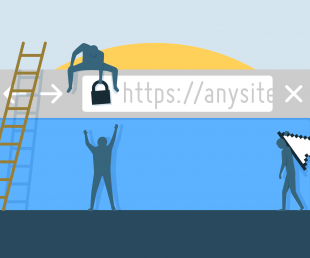Summer is the designated season of travel.
Kids are out of school for a couple of months, and something about the warmth and sunshine gives us the urge to get away.
So, what do you do when you’re desperately in need of a vacation, but you’re financially focused on paying off your debt?
Most experts would tell you to put your vacation on hold.
After all, traveling has become an expensive endeavor.
While that is a financially sound option, there are times when a trip is necessary to preserve your sanity.
Thankfully, there are ways you can have a summer getaway when you have debt.
Here are five ways you can enjoy traveling without ruining your debt payoff plans.
1. Take a Staycation
Contrary to popular belief, you don’t have to travel hundreds of miles from your home to have a vacation. Instead of spending hundreds of dollars on a far-off beach retreat, take a week off of work anyway and just stay home to relax.
The trick to a successful staycation is really committing yourself to relaxing, as in, don’t spend your time doing all the chores and housework you’d do on a normal weekend.
Think of all the things you’d normally love to do on vacation and then find ways to do them at home. Maybe that means sleeping in every day and having a movie marathon. Or spend a week reading all those books you’ve been dying to get to, but never have the time to finish.
Spend a day as a tourist in your own town by trying a new restaurant or go to a local museum. Plan out a perfect day full of anything and everything you’d love to do and just enjoy your time off.
The best part? No flight delays, living out of a suitcase, or unpacking!
2. Go Camping
If staying at home just won’t do the trick, camping is another great option for a summer getaway when you’re trying to save.
Camping can be a great way to enjoy some quiet time in nature. It’s the opportune time to disconnect from technology and the hustle and bustle of daily life.
The U.S. has an array of campsites throughout the country. You can find ones close to home or choose one a little farther off for a road trip.
The great thing about camping is that it eliminates the cost of a pricey hotel, which is usually the biggest expense of a vacation. And although camping gear can get expensive, if you ask around you’re bound to find someone who has a tent and some sleeping bags you could borrow.
If camping isn’t exactly your thing, consider searching for “glamping” sites or renting a cabin instead.
3. Home-Swap
As mentioned, the cost of hotels alone can rack up the price of your summer getaway quickly. Instead of searching for cheaply priced hotels that may or may not be worth their price, think of friends and family you may have in other parts of the country or world and offer to swap homes for a short period of time.
The great thing about swapping houses is that it allows you to travel somewhere for a fraction of the cost. And, if you don’t have relatives or friends with homes afar, you could always use a website like HomeExchange.com.
For example, in the movie The Holiday, two strangers, one from Los Angeles and one from England, swap houses for two weeks. Home Exchange will help you save on accommodations and allow you to live like a local. Plus, since you’ll most likely have a kitchen, it’ll also help you save in food costs.
4. Save Up & Pay Off Debt
If you’re really dying to travel, the best thing you can do is save up ahead of time. Of course, if you have debt, you’ll have to save up for your trip and pay off debt simultaneously.
So, how exactly do you go about that? If you’ve been juggling debt from multiple places, you’ve most likely already learned to prioritize it.
Figure out which debt must be paid off first and make sure you continue putting money towards that. Then, figure out exactly how much your summer getaway is going to cost. Budget for everything from hotel accommodations to souvenirs to food to any local attractions you may partake in.
From there you can figure out how much you’ll need to budget for to continue paying off your debt and save money for your getaway.
It may seem impossible, but it can be done. In fact, my desire to travel has helped me pay off debt faster since I decided to “reward” my debt progress with a short cross-country trip to visit a friend. If there’s a will, there’s a way.
5. Dig for Deals
Like you would before you make any large purchase, shopping around is a must. The same goes for vacation deals. There are some great websites out there that can alert you to great budget vacation packages.
Sites like Travelzoo.com, Groupon, Expedia, and Fly.com can help you compare prices and alert you to discounts and cheap deals on everything from complete packages to restaurants to hotels and plane tickets.
The key to this is to be as flexible as possible and to pick a locale that isn’t on the top five summer destinations list. Figure out how much you can budget for a trip and then browse the deals. Nevertheless, if you’re willing to be open-minded, you could find yourself on a seven-day vacation to the Azores islands looking out onto a beautiful ocean view for a fantastic price.
When you’re trying to pay off debt, it can sometimes feel like your life is on hold. Your debt is often the only thing on your mind financially, and the majority of your income tends to go towards eliminating that debt. That means a lot of your life plans and desires are put on the back burner until you’ve climbed out of the hole.
Unfortunately, travel tends be one of those things pushed to the wayside no matter how much you’d love (and maybe even need) a summer getaway.
Thankfully, even with debt, there are still ways to enjoy a summer getaway. Be creative and open-minded, and you’ll find yourself relaxing in no time!
This article was written by Kayla Sloan from Everything Finance and was licensed from NewsCred, Inc. Santander Bank does not provide financial, tax or legal advice and the information contained in this article does not constitute tax, legal or financial advice. Santander Bank does not make any claims, promises or guarantees about the accuracy, completeness, or adequacy of the information contained in this article. Readers should consult their own attorneys or other tax advisors regarding any financial strategies mentioned in this article. These materials are for informational purposes only and do not necessarily reflect the views or endorsement of Santander Bank.
![]()



